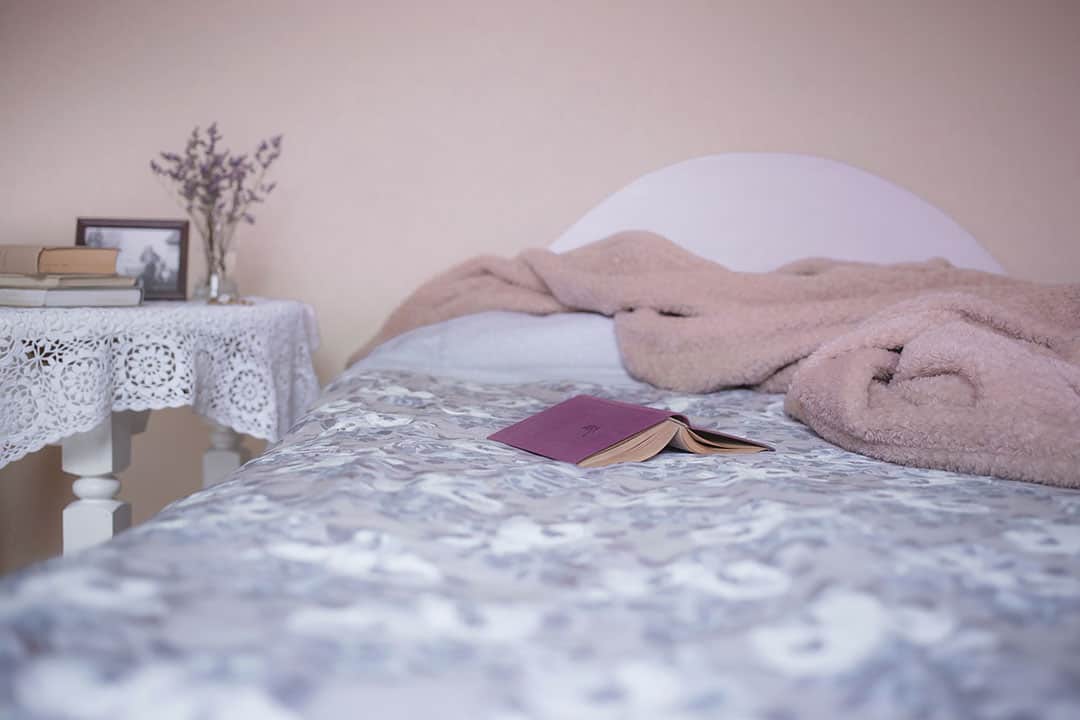Why sleep matters
Why does sleep matter?
In a word, it’s everything. Whilst we all know that getting a good night’s sleep is good for us, just as having a well-balanced diet and getting enough exercise, what most of us don’t know is that sleep isn’t just beneficial, it’s essential. The sleep process is very active, our body repairs itself and our brain regenerates, consolidating memories and organising them. This in turn helps us to process new information, problem solve and improve memory the next day.

We usually have 4 stages of sleep. Stage 1 is the lightest stage of the non REM (NREM) sleep. This is a type of drowsy sleep where we can be easily interrupted or disturbed. Stage 2 is the first actual stage of NREM sleep, here our body temperature starts to decrease and heart rate begins to slow and disturbances do not occur as easily. Stage 3 is the deepest stage of NREM sleep and the most restorative stage of sleep; it’s harder to wake someone in this stage of sleep. Stage 4 or REM sleep (rapid eye movement) is known as the dreaming stage. These stages are known a as a Sleep Cycle which can occur every 90-120 minutes a night so someone can go through 4/5 sleep cycles in a night. It is during stage 3 of deep sleep when the human growth hormone is released and restores our bodies and muscles. Therefore it is this stage of sleep that we need to make sure we are getting enough of, and often if you have a nap in the day and go into deep sleep, you may find you do not need as much sleep at night as your body does not need this type of restorative sleep.
As well as improving our brain functions, sleep is essential for our physical and mental wellbeing. While stress, anxiety and depression can affect our sleep, in turn, a lack of sleep can cause depression and cause insomnia, by causing disturbances in our sleep cycles and waking up intermittently during the night. A lack of sleep can make it harder to regulate our emotions and can make us more irritable to be around, which can in turn affect our relationships. One sleep study showed that people who had not slept had a reduced ability to recognise expressions of anger and happiness (Van der Helm, Gujar & Walker, 2010), so this would affect how we perceive social cues and cause misunderstanding.
On a physical level, sleep has been proven to improve our immune functions, and also reduced inflammation in the body. Having a good level of sleep can help improve our speed, accuracy and reaction time, therefore compromising on our sleep means we also compromise on our daily performance in general. Getting a good night’s sleep is important as lack of sleep has also been proven to be fatal in worse case scenarios. Sleep is needed for us to be our best selves physically and mentally, especially when we have an interview or a big day ahead of us whereby it is imperative for us to be at our peak performance.

We all have a circadian rhythm, which is like a 24 hour internal clock, also known as our sleep/wake cycle. Our circadian rhythms tend to coincide with the cycle of daytime and night time. When it’s dark at night our eyes send a signal to our hypothalamus (the area of the brain that secretes substances which influences the processes that regulate our bodies) that it’s time to feel tired. Your brain then sends a signal to our brain to release melatonin which makes our body tired.
The Quran mentions sleep numerous times and it being at night, after ‘Isha prayer and waking for Fajr prayer which begins at the first light of dawn, which aligns to the circadian rhythm.
“And We have made your sleep as a thing for rest.
Qur’an 78:9-11
And We have made the night as a covering (through its darkness),
And We have made the day for livelihood”
So how can we improve our sleep and make sure the quality is just as good as the amount of sleep we get? We need to look at our sleep hygiene. Sleep hygiene refers to the rituals, norms and behaviours we follow around sleep.
So how can we improve your sleep hygiene?
Ideally the place where we sleep should be comfortable, quiet, dark and cool in temperature. If you’re someone who struggles with sleep, then putting a routine in place and dimming the lights and limiting screen time an hour before you want to sleep, will signal to the brain that you are trying to wind down. Avoiding late night snacks will also help your body rest and not have to work so hard at digesting food and over stimulate the mind. Deep breathing can also help as it introduces the parasympathetic system (which simply put helps us to conserve energy) into the brain so that the body will naturally start to relax as chemicals are released. The use of oils in aromatherapy can also trigger the same feeling. Lavender oil is said to aid sleep, with one study showing that lavender increased slow-wave sleep (Weseleyan University, 2005).

Can you think back to a time when having a good night’s sleep helped you deal with the day ahead?




